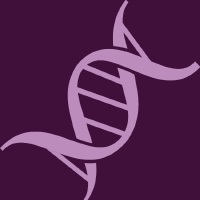Topic Editors

Antibody-Mediated Therapy and Other Emerging Therapies in Cancer Treatment
Topic Information
Dear Colleagues,
Recent advances in antibody-mediated therapy have significantly improved its therapeutic efficacy in many types of cancer. Antibody-mediated therapy includes the following:
- Monoclonal antibodies against specific targets associated with cancer cell survival, progression, metastasis, and drug resistance;
- Monoclonal antibodies against specific targets that are relatively highly expressed in cancer cells or are cancer-specific, regardless of cancer cell survival progression, metastasis, or drug resistance;
- Monoclonal antibodies against specific targets in cancer cells or normal cells that modulate the tumor microenvironment, especially immune systems;
- Antibody–drug conjugates (ADCs) are complex molecules consisting of antibodies conjugated to biologically active cancer cell-killing substances.
These antibody-mediated therapies have been widely used as combination therapies due to their synergistic effects with cytotoxic anticancer drugs. Eventually, ADCs, complex molecules consisting of antibodies and cytotoxic substances, were developed to improve treatment outcomes. However, the side effects of ADCs are very serious, requiring careful monitoring during treatment. Therefore, this Topic was prepared to deeply examine the efficacy, related mechanisms, and toxicities of the latest antibody-related therapies or other novel therapies for each cancer.
Scope of the Topic
- Monoclonal antibodies as monotherapy, as antibody–drug conjugates (ADCs), or in combination with other drugs in cancer treatment:
- Efficacy, mechanism of action, and treatment guidelines;
- Predictive/prognostic biomarkers;
- Toxicity and management.
- Other emerging therapies in cancer treatment (CAR-T cell therapy, NK or other cell therapies, oncolytic virus therapy, cancer vaccines, targeted therapy, etc.).
Dr. Won Sup Lee
Prof. Dr. Yaewon Yang
Prof. Dr. Seil Go
Topic Editors
Keywords
- antibody-mediated therapy
- monoclonal antibodies
- antibody-drug conjugates (ADCs)
- cancer treatment
- emerging therapies
Participating Journals
| Journal Name | Impact Factor | CiteScore | Launched Year | First Decision (median) | APC | |
|---|---|---|---|---|---|---|

Cancers
|
4.4 | 8.8 | 2009 | 20.3 Days | CHF 2900 | Submit |

Current Issues in Molecular Biology
|
3.0 | 3.7 | 1999 | 17.8 Days | CHF 2200 | Submit |

Current Oncology
|
3.4 | 4.9 | 1994 | 21.5 Days | CHF 2200 | Submit |

Scientia Pharmaceutica
|
2.5 | 4.6 | 1930 | 38.1 Days | CHF 1000 | Submit |

Antibodies
|
2.7 | 4.5 | 2012 | 22.2 Days | CHF 1800 | Submit |

International Journal of Molecular Sciences
|
4.9 | 9.0 | 2000 | 20.5 Days | CHF 2900 | Submit |

International Journal of Translational Medicine
|
- | 2.2 | 2021 | 25.9 Days | CHF 1000 | Submit |

Preprints.org is a multidisciplinary platform offering a preprint service designed to facilitate the early sharing of your research. It supports and empowers your research journey from the very beginning.
MDPI Topics is collaborating with Preprints.org and has established a direct connection between MDPI journals and the platform. Authors are encouraged to take advantage of this opportunity by posting their preprints at Preprints.org prior to publication:
- Share your research immediately: disseminate your ideas prior to publication and establish priority for your work.
- Safeguard your intellectual contribution: Protect your ideas with a time-stamped preprint that serves as proof of your research timeline.
- Boost visibility and impact: Increase the reach and influence of your research by making it accessible to a global audience.
- Gain early feedback: Receive valuable input and insights from peers before submitting to a journal.
- Ensure broad indexing: Web of Science (Preprint Citation Index), Google Scholar, Crossref, SHARE, PrePubMed, Scilit and Europe PMC.

